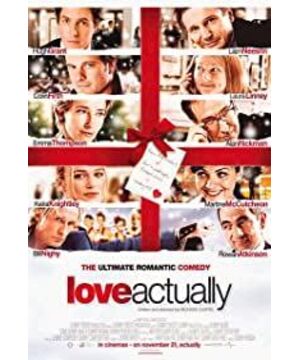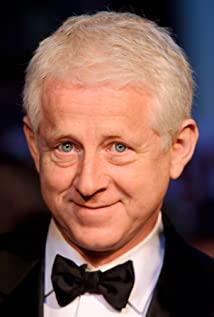In the final analysis, a festival atmosphere film is actually a large-scale promotional copy made into an image. The focus is on using the festival atmosphere to win the resonance of the audience and earn the box office. So this kind of film actually has an obvious routine, that is (1) a story that will inevitably end in a happy ending (design drama conflicts according to needs), (2) use as natural as possible (it doesn’t matter if it’s unnatural, anyway, the audience just Look at the music) embed various jokes and witticisms, (3) and use exaggerated performance forms to form obvious comedy effects, and (4) use movie soundtracks, environmental portrayals, and extras to focus on portraying the festive atmosphere. Among them, "True Love First" and the Hong Kong New Year film "72 Tenants" are both typical examples.
Because this kind of film has been produced in a routine pipeline, and the audience's requirements are not high. As a result, the requirements of many producers have become lower and lower. They only ask for the box office but not the quality, and even the audience is too lazy to perfunctory. As a result, the quality of most films is appalling. Although the only way to make such films unconventional is to tell the story well, many directors also fail. Curtis’s 2009 work "Pirate Radio" is well received (although there are many criticisms), it is a successful example of mature and sophisticated use of popular elements to please the audience: there are conflicts and happy ending stories (as clues), there is music , Clothing, behavior and attitude (popular elements), and even slogans (for the time being as themes/gimmicks). But in 2003's "True Love First", Curtis obviously did not mature to the level of "Sea". The important weakness is that the story is too bad.
Of course, in this film, Curtis has a very good idea, at least from the structure of the general holiday atmosphere to draw a line between the film, the director tried to use a networked story structure, with multiple sets of clues to support the film. It can be said that since "Pulp Fiction" in 1994, the narrative of multiple clues has gradually become a trend, and the British director Gerich adopted the same method in "Two Smokers" in 1998. Therefore, Curtis's setting in this way can be regarded as a way to follow, but once the story is not well told, the structure becomes the biggest loophole, falling into the embarrassment of only copywriting but no content.
The fundamental reason for the bad storytelling of "True" is that the story is not well prepared, the plot development is rigid and rigid, the story itself is thin and deliberate, and the audience knows that it is for the actors in the film to act for themselves, which obviously does not conform to the film performance principle. (When performing an actor's performance on the camera, try not to make the audience feel the fact that they are performing as strongly as possible, let the audience substitute it in the process of watching, and gradually ignore their own watching behavior is the best effect). The reason for the insufficient preparation is precisely that there are too many stories. The whole film is 135 minutes long but has 10 love stories. On average, one story is 13.5 minutes. Even considering the priority of the story, the longest length will not exceed twenty minutes, and the short story will only last a few minutes. For genre films that rely on the storyline, the story of "True" is short and poorly handled, and it becomes a synopsis of the story. Even if it explains the development of the storyline, it is difficult to conceal the fragility of the story. Instead, it feels that the plot is not. Authenticity (of course, most viewers don't care).
When the story is thin, it becomes abrupt to take the holiday genre film routine. Excessive use of exaggerated performances and jokes will only make the film vulgar, but when the story is good, the adverse effects in this respect can be eliminated, and it will become an auxiliary to the story. However, the story of "True" is so rigid that it cannot conceal the vulgarity of exaggerated performance, but magnifies its shortcomings. Under such circumstances, pretending to be a mature child makes me dumbfounded; the plot of jumping into the lake to save the manuscript makes me feel abrupt; the form of card confession makes me feel unnovel and vulgar... and the whole film is watched. , It is even more obvious to feel the traces of the director's arrangement.
Perhaps it was too ambitious or worried that the frame was not full enough, so the director arranged 10 stories in a row in a film, but this backfired resulted in the film's content being bloated and not full. If you reduce a few stories and use the appropriate space to arrange the story narration, then the film will be better with the routine setting. Of course, you can maintain the structure of ten stories and change the development of the story into a fragmented story plot. It is also a good choice to use a fragmented plot to render the atmosphere, such as the fragmented "Love Map" and the dialogue of Jamusch "Coffee and Cigarette" is a reference example. After all, the plot rendering of the clip is more conducive to the display of short lengths. Hemingway's "Mountains Like White Elephants" and Carver's "What's in Alaska?" "The reason why it is based on a fragment is based on this consideration.
In addition, the star collective selling cuteness and strong British atmosphere are still deeply loved by the audience. As for the story itself, I believe most audiences will not care. After all, as long as they are happy to watch, who cares whether these stories are well said. Woolen cloth? What does Curtis think about this?
View more about Love Actually reviews











